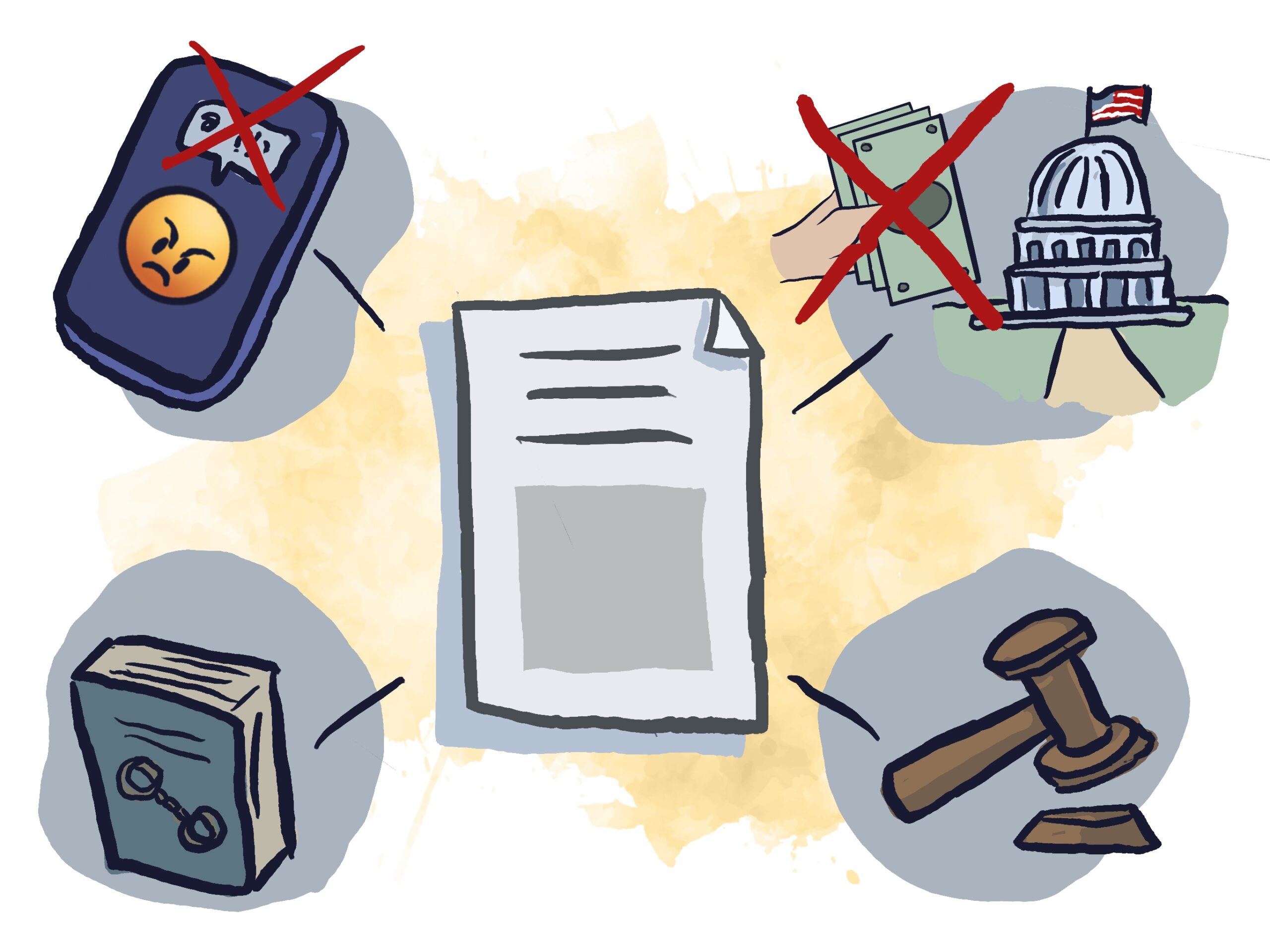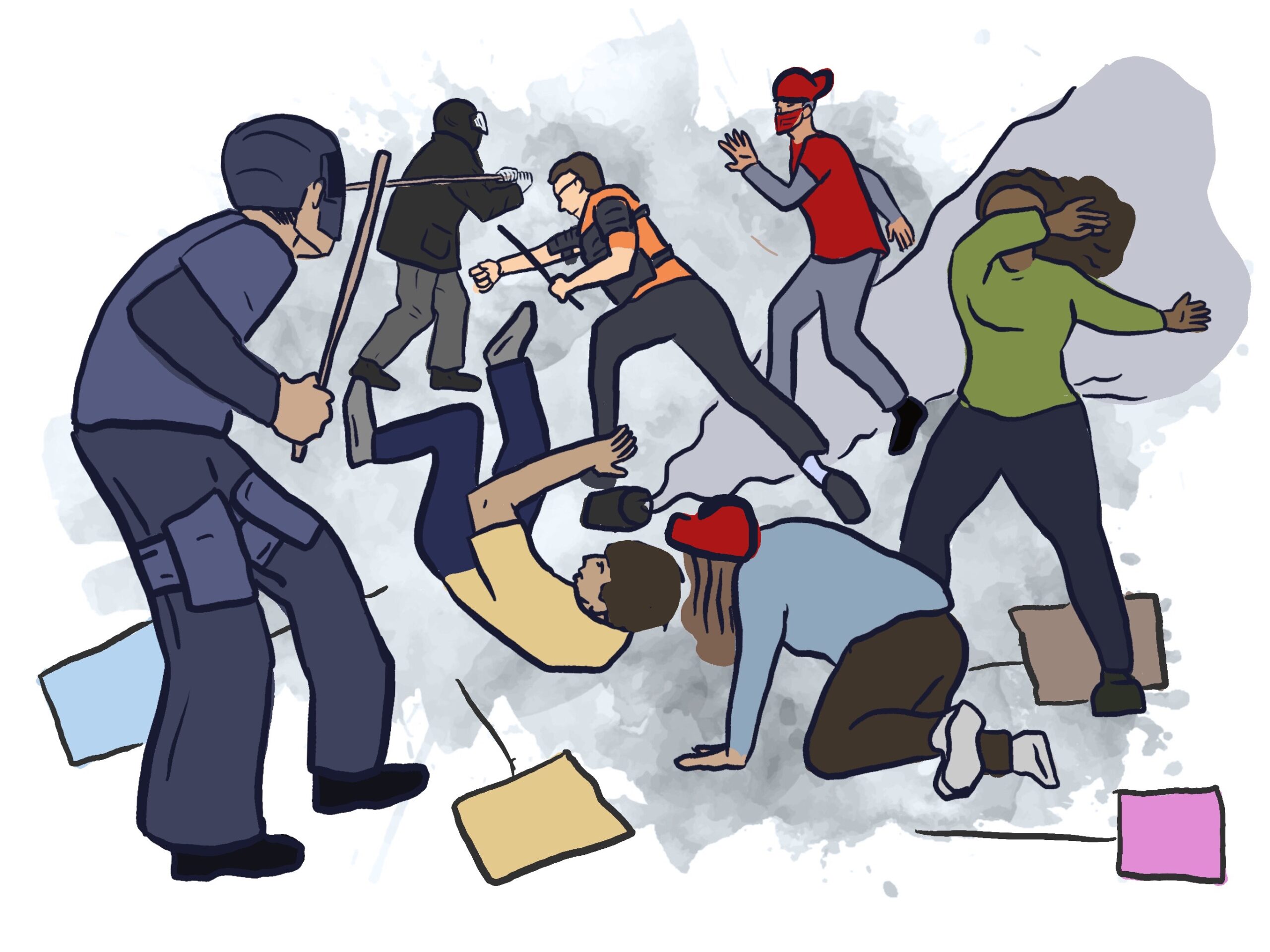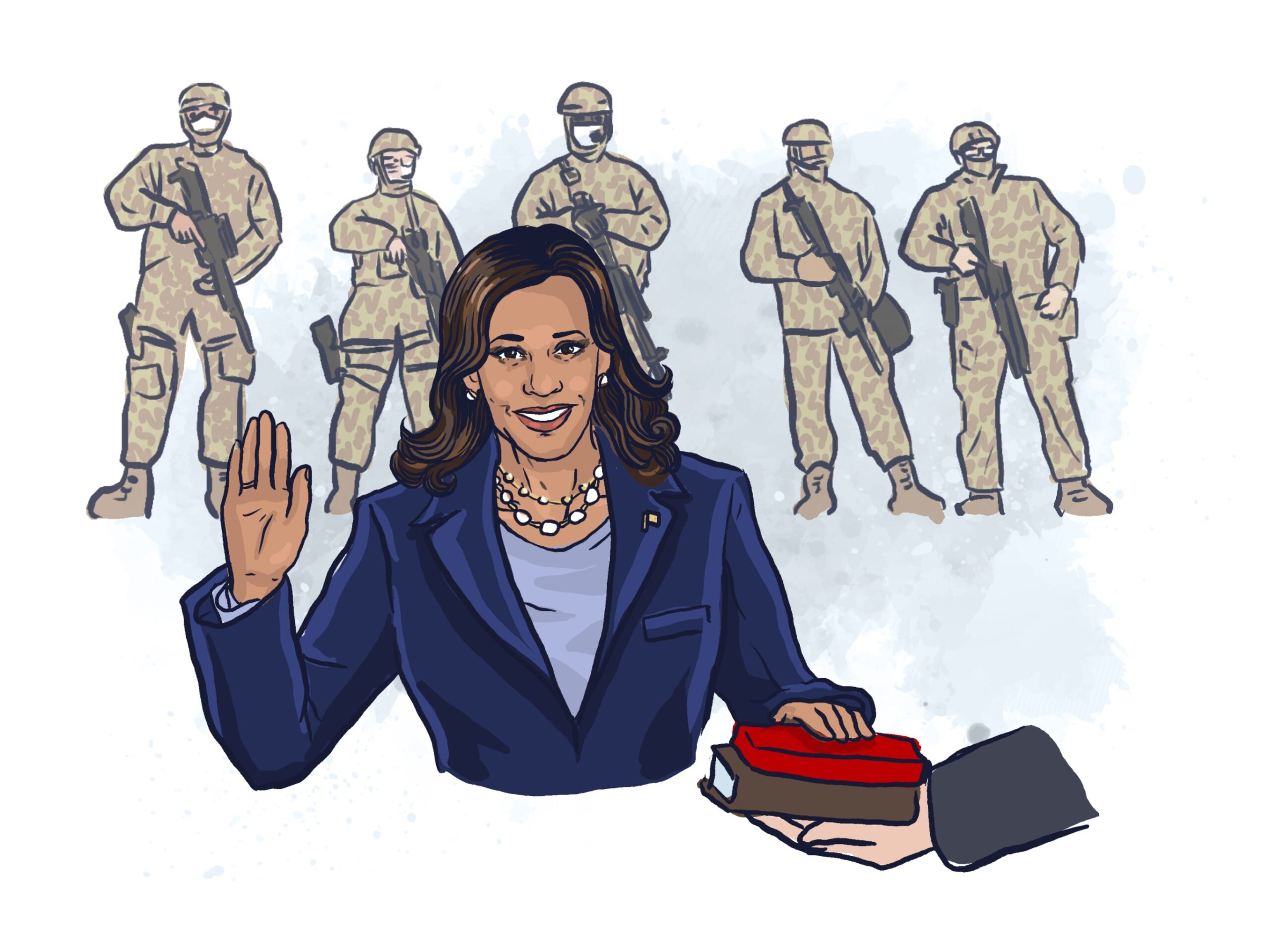Groups have already articulated how we can combat extremism: reducing hate speech on social media, teaching a fuller understanding of U.S. history and its race- and gender-based violence, removing money from politics, changing the Electoral College, imposing greater penalties on people who undermine the election process, and so on. You join groups who are rallying around these changes as part of a wide-ranging bill proposed in the wake of recent threats to democracy.


The clashes in D.C. are violent. For a moment, it looks like a civil war could break out. But Donald Trump is not a general, and he doesn’t have a clear internal team around him — just a lot of loyalists who bicker and fight. So when Trump is arrested on charges of treason, the Trump loyalists split into multiple, divided camps. They fight over tactics, strategy, location, and funding — and the military is able to regain control of D.C. Thousands of Trump supporters are arrested.
When the riots are finally quieted on the street, the “Anti-Insurrection Act” is hard for even a reluctant Congress to avoid. Though the bill is watered down severely, major pieces are passed by Congress, shocked by the situation that has unfolded again.


The transition of power happens on January 20, 2025 with a large military presence. President Harris is inaugurated to fulfill a four-year term. The country weathers this tense period, but barely. You know there’s much work ahead, but you feel proud for your role in helping your country avoid a coup and building an alternative.
THE END.
You survived the transfer of power. But creating a deep democracy is a much bigger task ahead. Researcher Stephen Zunes has identified four things we need to stop a coup: widespread opposition, nonviolent discipline (to avoid giving the wanna-be autocrat excuses for more violence), alliance building, and refusal to recognize the coup plotters as legitimate.
Read Closing Thoughts from the author.
